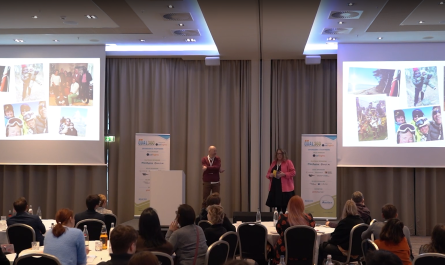Qualitative research in the metaverse
The metaverse is an emerging phenomenon that is steadily growing globally and promises to offer great opportunities in the near future. It can do much more than just provide a platform for playing by mixing VR/AR with real reality and changing entertainment into a more immersive, personalized and unique experience. To understand the many possibilities of the Metaverse, a group of researchers embarked on a mission: to investigate what application opportunities there are for qualitative research.
It all starts with avatars
The key to entry into the metaverse is an avatar which represents a person’s virtual self. Avatar creation offers total freedom of expression allowing people to decide to be anyone or anything and transform into someone or something completely different with a few simple clicks. But why entering the metaverse?
From a motivational standpoint, the metaverse represents the possibility of acting out one’s need to be identity fluid: younger generations often choose an abstract concept with a strong personality and low anthropomorphism; there is a perceived need to inhabit an alternate form that allows for complete freedom of expression. Just look at these avatar examplesrun, people go to lengths to express themselves!

The departure from reality frees individuals from their identity and allows them to go beyond their real self. The possibility of an alternative world emerges, a world in which the reason for engagement is completely open. Entering the metaverse and meeting other “subjects” allows for a cognitive and free experience which fills a need for relationships. For digital natives, the metaverse is the fulfilment of an identity that is both real and virtual. It allows to live experiences that otherwise would not be possible and to access other realms without ever leaving home.
People project themselves into the metaverse in many different ways. It is not just a place for gaming, but a parallel reality ready to explore, experience, buy or sell, a reality that is not just virtual, but also factual, concrete, practical, present and tangible. As qualitative researchers, we are very interested in the many possibilities for research applications in terms of setting (an immersive reality), expression and creativity. The metaverse enables to interact with a difficult target: it is for these digital natives that new methods of qualitative research are being created in order to determine how to maintain a high level of involvement and establish useful observations and dialogues.
But what is the metaverse? As researchers and behavioral scientists, we should start with a positive view and assessment: videogaming is a serious subject and we need to understand why:
- The metaverse is a narrative within which new and multiple meanings are created.
- It is a non-sequential, non-linear text. Engagement, learning by doing, exploration and autonomy are some of the key elements of non-sequential contexts.
- It is an interactive environment: interactivity is both active enjoyment and influence over the narrative.
- It is reality within fiction.
Opportunities for qualitative research in the metaverse
A recurring theme which runs through all of the practical applications is the immersive experience that the gaming domain provides. In addition to players’ moods, motives, this also presents opportunities in terms of data collection:
- Observing behaviors and interactions (“meta-ethnography”)
- Direct involvement in research via interviews
The following points should be addressed further:
- How to define the user identity (who are we talking to?)
- How to motivate users to participate in qualitative research in the metaverse?
- What are the advantages and limitations of different contact strategies?
Operationally it is our opinion that:
- Recruitment should be performed directly on the platforms, there are no advantages to traditional recruiting
- Moderation is close to traditional modes (but via avatars!)
- Passive, active, accompanied observations, ethnographic or semiotic studies require minimal adaptations.
The pitfalls, excesses and dangers
Finally, as social scientists, we point out the dark side of the metaverse: the pitfalls, excesses and dangers. Verbal violence (insults, accusations, judgments, winks, profanity) and/or visual violence (inappropriate gestures and dress) are not uncommon. These “digressions” are recurring often as the result of an objective difficulty in setting up effective control systems by the platforms. There is a compelling need to protect an audience that is too young to own the psychological resources to process and deal with violence, as well as the related risks arising from the lack of sanctions and the blurring of lines between virtual and real life. Qualitative research in the metaverse needs to be safe for participants.
Lawmakers are having a hard time keeping up with the evolution of the Web, which is why we hope that while researchers figure out how to make the best use of the opportunities, lawmakers can establish a framework that allows everyone to access a risk free metaverse. We see a risk, especially for future generations to progressively lose the references that enable to distinguish between the real world and the metaverse. The metaverse most definitely offers extraordinary advantages and solutions, but the need for stricter guidelines, norms and behavior rules is still currently unfulfilled.
This article is based on notes from “An Application Pathway for Qualitative Research in the Metaverse, a Growing Phenomenon”. Authors: Massimo Cealti (Founding Partner – Altitude C), Daniela Fujani (Co-Founder – Tips Ricerche), Stefania Gogna (Semiotician), Luca Meyer (Freelance Market Researcher). The authors will present their work at the upcoming virtual Insight Extravaganza Conference on July 12&13! Sign up at https://www.insightextravaganza.com/.
Read on for more articles about qualitative research in our dedicated Qual section.











 by
by 


One thought on “Avatars, the gateway to qualitative research in the metaverse”